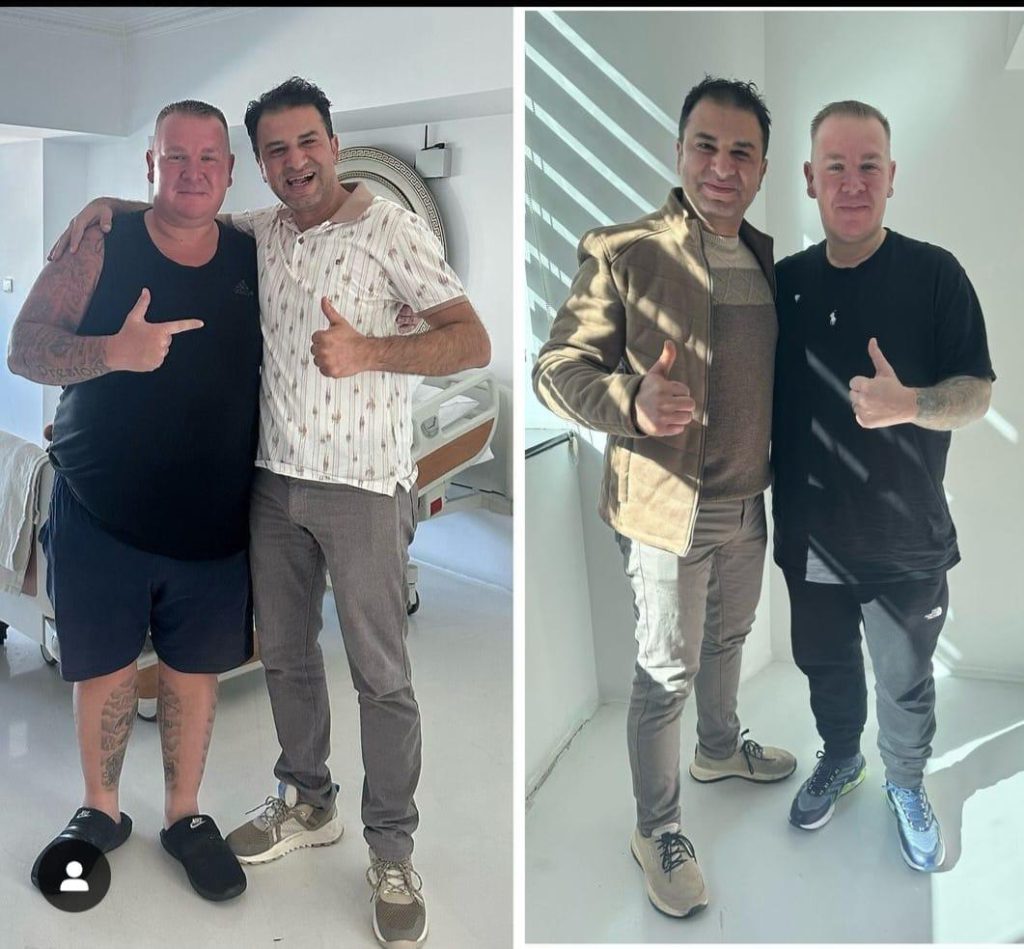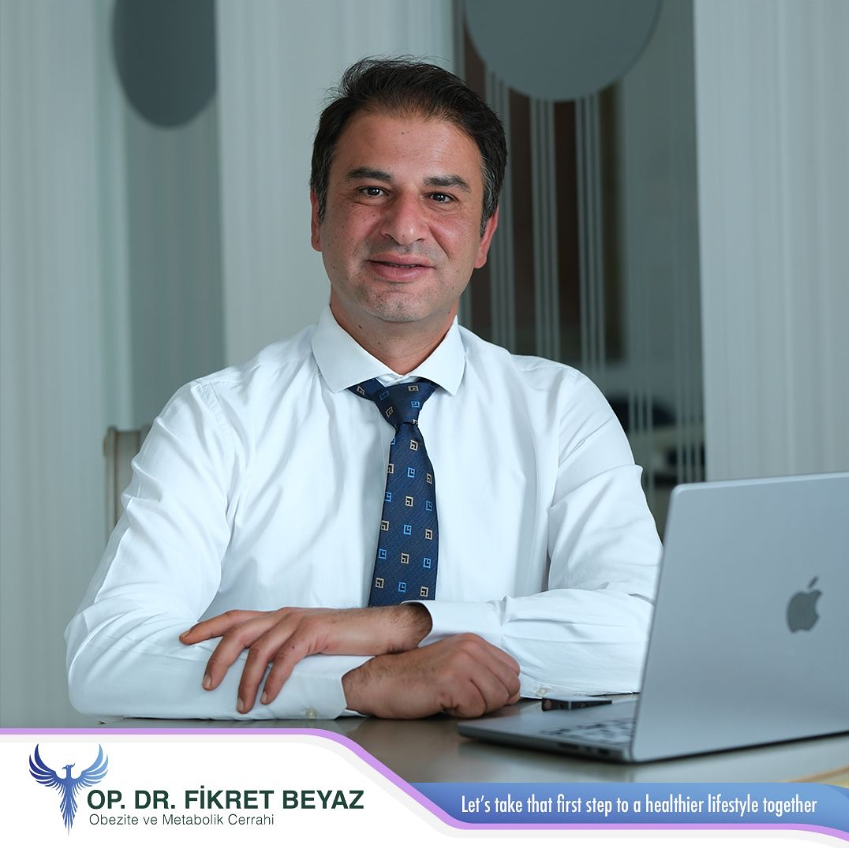About Gastric Bypass Surgery?
Gastric bypass surgery is designed to reduce the amount of food a patient can consume by shrinking the stomach size and shortening the pathway food travels through the small intestine, limiting absorption. In other words, it is both restrictive and malabsorptive surgery. The new digestive system bypasses the lower stomach, the duodenum (the first part of the small intestine), and the first portion of the jejunum (the second part of the small intestine). By reducing the stomach’s capacity, this surgery enables weight loss and helps people have a healthier lifestyle, making it a life-changing choice for many individuals.
How Does Surgery Work?
Gastric bypass surgery, also known as Roux-en-Y gastric bypass, is performed laparoscopically using small incisions, a camera, and specialized instruments. During the procedure, the surgeon creates a small pouch from the upper part of the stomach and reroutes the small intestine to this pouch. This bypass reduces the stomach’s capacity and limits the amount of food a person can eat, contributing to significant weight loss. In addition to restricting food intake, gastric bypass surgery alters the digestive process by bypassing a portion of the small intestine. As a result, fewer calories and nutrients are absorbed from the food, which leads to further weight loss. The surgery also impacts hunger-regulating hormones, particularly reducing ghrelin, which decreases appetite. Many patients report feeling full after eating smaller portions, helping them to reduce their overall food intake. Beyond weight loss, gastric bypass surgery can lead to significant health improvements, especially for patients with type 2 diabetes. Some individuals experience remission from diabetes, with the need for medication disappearing. However, due to the reduced nutrient absorption, lifelong vitamin and mineral supplements are often necessary to avoid deficiencies.
Before After



Benefits of Gastric Bypass Surgery
● Significant Weight Loss
● Short Recovery Time
● Increase in Quality of Life
● Boosted Energy Levels
● Increase in Self-Confidence
● Freedom in Movement and Better Joint Health
● Healthier Heart.
● Relief from Sleep Apnea – Many patients find complete relief from obstructive sleep apnea.
● Improvement in Obesity-Related Conditions – Conditions like type 2 diabetes, hypertension, and hyperlipidemia often improve or resolve.
● No Foreign Objects: Unlike gastric banding, this surgery does not involve foreign implants.
Post-Surgery Recommendations
There are some important points you should pay attention to when you are discharged after sleeve gastrectomy surgery.
● Pay particular attention to fluid consumption and avoid carbonated drinks.
● Take your medication on time and inform your doctor about any complication.
● Engage in short, regular walks but avoid heavy exercise.
● Maintain hygiene during post-operative dressings.
● Always go to your follow-up appointments on time.
● Begin vitamin and mineral supplements as advised by your doctor to prevent nutritional deficiencies.
Taking good care of yourself after surgery period will speed up your recovery process and helps to reach your goals.

Meet Our Surgeon
Dr. Fikret Beyaz is your dedicated ally in the battle against obesity and type 2 diabetes. He is not just a doctor; he’s a compassionate healer who understands the physical and emotional challenges you face. With Dr. Beyaz by your side, you can look forward to a brighter, healthier future. He’s not just a surgeon; he’s a pioneer in improving the lives of countless individuals who have struggled with obesity and side effects. Like how he always say to their patients: “everybody deserves a healthy life.”
Surgical Risks & Our Commitment to Your Safety
Surgery Complications
Surgery can lead to issues like infection, bleeding, or blood clots.
How we handle this: We use advanced techniques, prepare patients well, and monitor them closely after surgery.
Nutritional Deficiencies
Even though gastric sleeve surgery causes less n utritional deficiencies compared to other bariatric surgeries, it’s essential to follow up.
How we handle this: We offer nutrition advice and supplements, plus regular check-ups to avoid deficiencies.
Dumping Syndrome
Food might move too fast into the small intestine, causing discomfort.
How we handle this: We guide patients to eat slowly, in small amounts, and avoid sugary foods.
Cosmetic Concerns
Laparoscopic surgery may leave scars, and weight loss can cause sagging skin.
How we handle this: We use small incisions for less scarring and provide advice on exercise and skin care. Plastic surgery referrals are available if needed.
Hair Loss
Some patients may lose hair temporarily due to fast weight loss.
How we handle this: We recommend proper nutrition and vitamins to support hair health. Hair usually grows back within a few months..
Gastric Bypass Recovery
Recovery phase is almost equally important as surgery to achieve the weight-loss goal. After gastric bypass surgery, patients begin with a liquid diet and gradually progress to clear liquids and then pureed foods. Light physical activity is encouraged throughout recovery. As they transition to regular solid foods, maintaining a focus on protein allows a return to daily activities and exercise with physician approval. Following a recommended diet and exercise routine is essential, and follow-ups help monitor progress. Significant weight loss and routine health evaluations are generally seen one year post-surgery.

